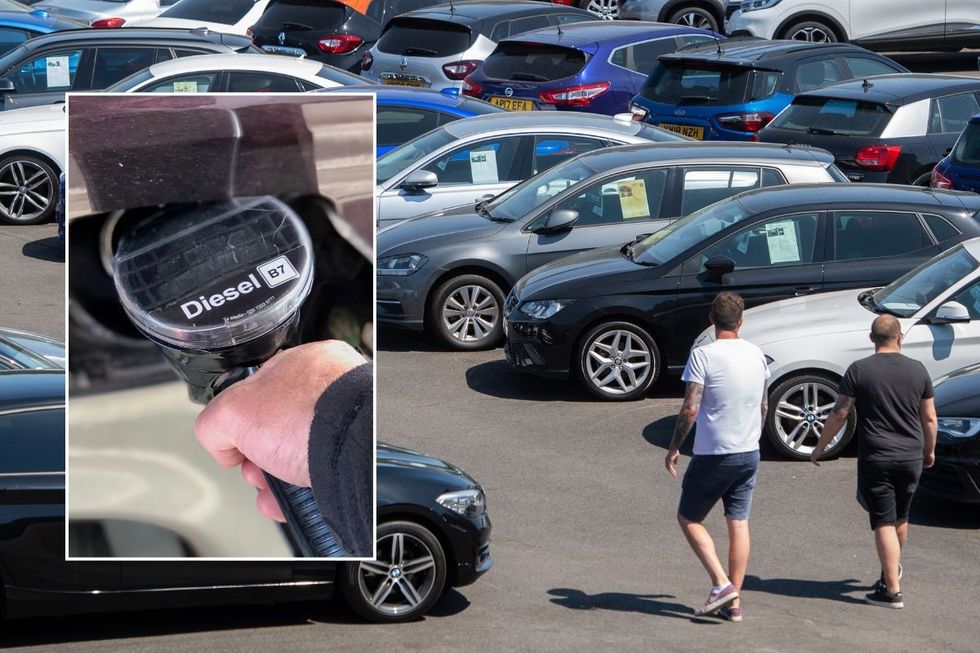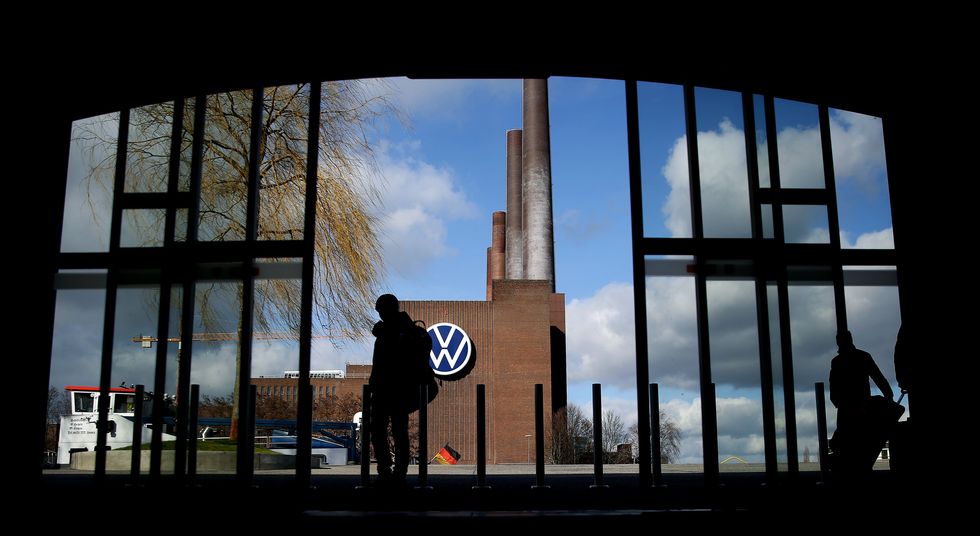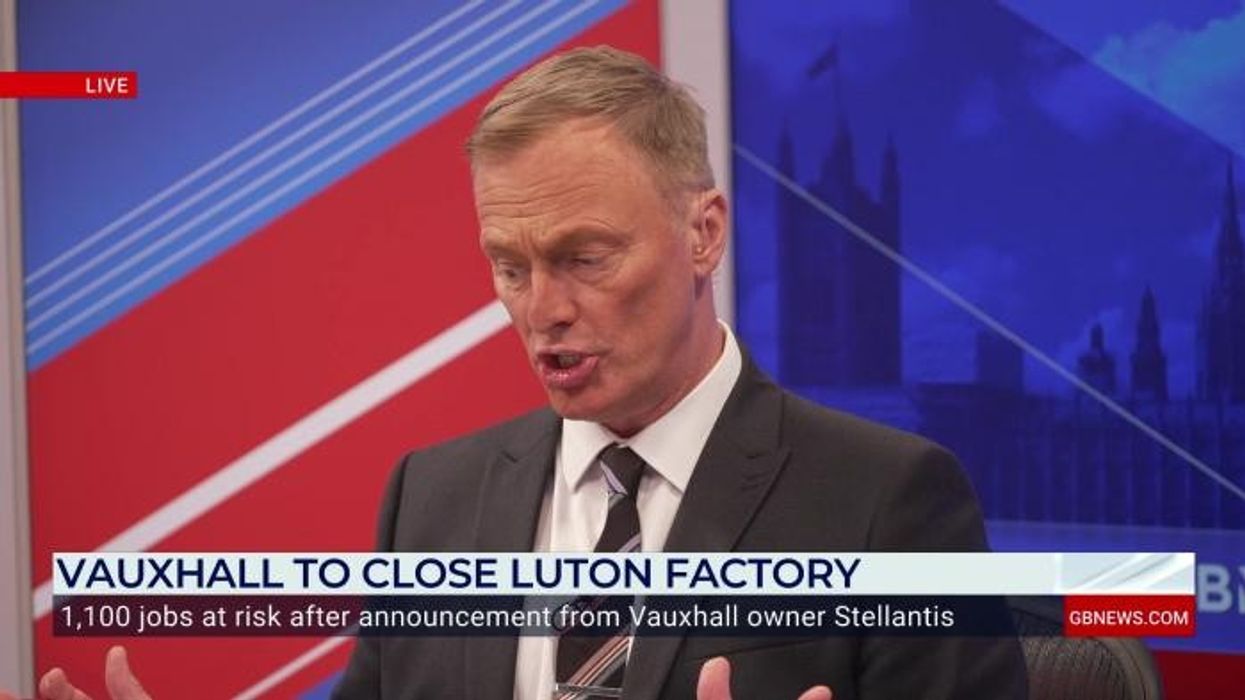Diesel cars 'near extinction' and could disappear within years as UK drivers prefer electric vehicles

The market share of new diesel vehicles by the end of this year is expected to be just five per cent
Don't Miss
Most Read
Diesel cars could disappear from roads in the coming years as drivers continue to turn their backs on the fuel type, with new data showing the damaging impact Dieselgate had on the once-popular cars.
New research has found that diesel cars are more unpopular than ever, with the fuel type making up just one in 17 new cars, despite being one in every two just a decade ago.
Sales forecasts suggest that the number of new diesel cars on the road could continue to fall, with data showing that diesel could have a market share of just two per cent by 2028.
Manufacturers are also taking note of the declining interest in the fuel type, with just 91 new diesel models available on the market, compared to 240 options 10 years ago.
Do you have a story you'd like to share? Get in touch by emailing motoring@gbnews.uk

The market share of new diesel cars on British roads could plummet to just two per cent by 2028
|GETTY
The research, from Auto Express, found that the fallout from the Volkswagen emissions scandal, referred to as Dieselgate, had a significant impact on the fuel type.
Between 2008 and 2015, the German brand was found to be cheating in emissions testing procedures with "defeat devices", with the scandal still impacting the perception of diesel 10 years on.
Paul Barker, editor of Auto Express, said: "Once the default choice for company cars thanks to favourable tax breaks, diesels have now been overtaken by EVs, with even stronger incentives encouraging fleets to go electric.
"This, combined with increasing cost, improvements in hybrid tech and the looming 2035 ban on new petrol and diesel sales, mean forecasts suggest diesels will make up just two per cent of the market - one in 50 cars - by 2028."
Many drivers are still keen to own a diesel vehicle, especially those who drive vans and other larger vehicles, since diesel remains the overwhelming favourite fuel type.
Data from the Society of Motor Manufacturers and Traders (SMMT) found that 85.5 per cent of all light commercial vehicles sold so far this year were diesel.
However, this is also falling quickly as manufacturers improve battery technology for larger vehicles and more drivers have faith in the technology.
Electric LCVs weighing less than 3.5 tonnes and those weighing between 3.5 tonnes and 4.25 tonnes have seen sales increase by 54.4 per cent and 163.4 per cent respectively.
LATEST DEVELOPMENTS:
Diesel has historically been lauded for its impressive fuel economy, range and towing ability, meaning that second-hand diesel vehicles hold their value better than other fuel types.
Cox Automotive data shows that diesels retain 51 per cent of their original price after between two and four years.
This is similar to hybrids (53 per cent) and petrols (58 per cent), and exceeds EVs (36 per cent) and plug-in hybrids (46 per cent).
The decision from motorists to move away from diesel vehicles can also be attributed to government policies, fuel prices and car tax rates.
 Volkswagen was fined billions of pounds for its involvement in the Dieselgate scandal | GETTY
Volkswagen was fined billions of pounds for its involvement in the Dieselgate scandal | GETTYThe most polluting vehicles, which are often diesel, pay the highest car tax rates, while diesel is consistently more expensive than petrol at forecourts around the country.
The rise of emissions-based charging zones has also become more popular. London's Ultra Low Emission Zone, in addition to numerous Clean Air Zones and Low Emission Zones across the country, have contributed to motorists switching to cleaner vehicles.
Mr Barker concluded, saying: "Diesel has gone from dominating the new-car market to near extinction in just a decade - a remarkable fall from grace.
"While sales are dwindling, strong used values show there’s still demand, but the writing is clearly on the wall. The big question now is whether diesel continues to fade gradually or if legislation will further accelerate its demise."











